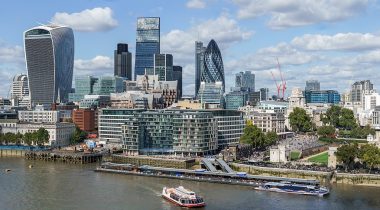
Nick Shaxson ■ Vladimir Putin, the KGB and the British and Swiss tax havens

 From the New York Review of Books, a look at a book called Putin’s Kleptocracy: Who Owns Russia, by Karen Dawisha. The review itself is fascinating, and for TJN this paragraph is particularly interesting:
From the New York Review of Books, a look at a book called Putin’s Kleptocracy: Who Owns Russia, by Karen Dawisha. The review itself is fascinating, and for TJN this paragraph is particularly interesting:
“Dawisha nevertheless argues that the KGB’s return to power begins not in 2000, when Putin became president, but in the late 1980s. At that time, the then leaders of the KGB, who distrusted Gorbachev, began transferring money that belonged to the Soviet Communist Party out of the Soviet Union and into offshore accounts tended by Swiss or British bankers. At least initially, these transfers took place with the Party’s knowledge.
In August 1990, the Central Committee called for measures to protect the Party’s “economic interests,” including the construction of an “invisible” structure, accessible only to “a very narrow circle of people.” KGB operatives who already had experience with managing foreign bank accounts—they’d been funding foreign Communist parties for decades—were put in charge.”
It’s a story positively writhing with offshore tax havens, secrecy, and the usual suspects: Britain and its dependencies, and Switzerland. We have noted, among other things, that the Euromarkets — the great, secretive deregulatory questions-free London-centric zone of free global finance — was fueled almost from the very beginning by Soviet banks looking to escape U.S. sanctions.
Once again, we have to ask ourselves in the West the question:
Mirror, Mirror, on the Wall, Who is the Most Corrupt of All.
One very good answer to that question, of course, is here.
Read more on this general subject here.
Related articles
Just Transition and Human Rights: Response to the call for input by the Office of the UN High Commissioner for Human Rights
13 January 2025

Tax Justice transformational moments of 2024

The Tax Justice Network’s most read pieces of 2024

Stolen Futures: Our new report on tax justice and the Right to Education
Stolen futures: the impacts of tax injustice on the Right to Education
31 October 2024
CERD submission: Racialised impacts of UK’s ‘second empire’

UN submission sets out racist impacts of UK’s ‘second empire’

Infographic: The extreme wealth of the superrich is making our economies insecure

Wiki: How to tax the superrich (with pictures)
Taxing extreme wealth: what countries around the world could gain from progressive wealth taxes
19 August 2024


The first postwar offshore transaction in London was conducted by a Russian bank, its wire name was Eurobank, hence the birth of the euromarkets…
Not quite so: the Russian banks came in about a year or two after the first transactions in 1955, which some trace to the activities of Midland Bank (now HSBC). But they were certainly there very early and the transactions were of course rich in irony.